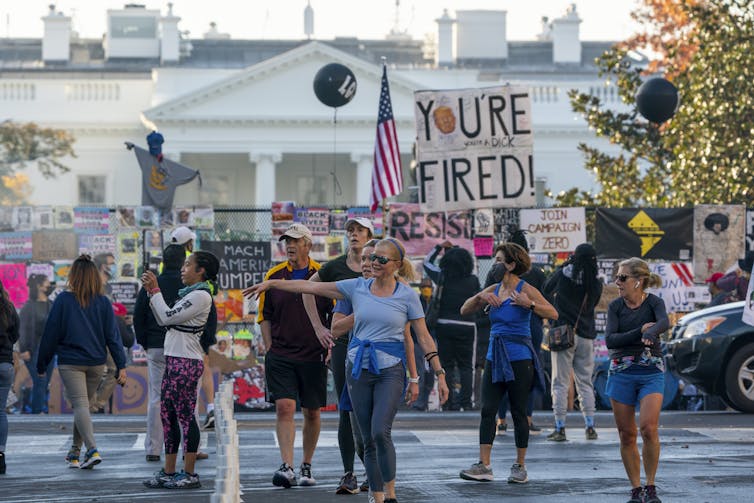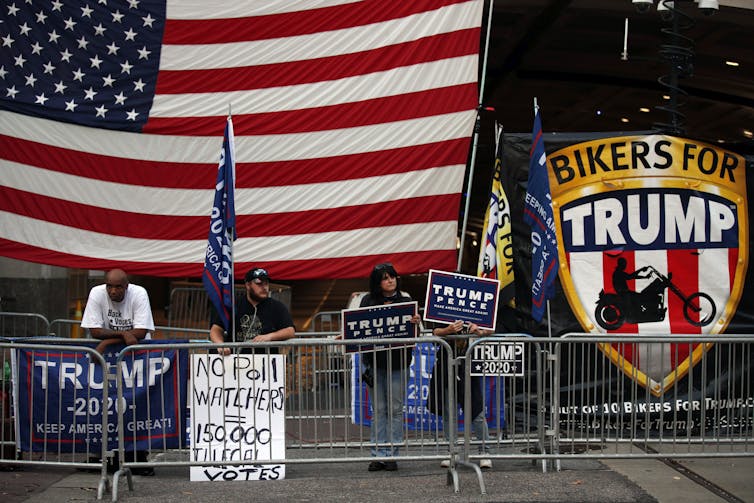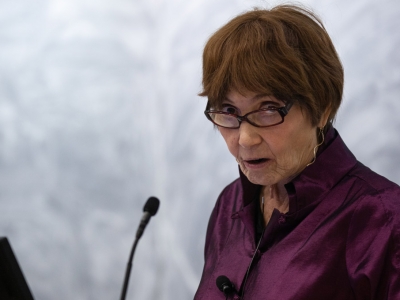By Jennifer Evans
The United States presidential election was a great spectacle. It was also a battle over the nation’s history and its future.
As historians will tell you, how we characterize the past has direct bearing on how we imagine possible futures. What is the vision for a post-Trump America?
In both the lead-up to Nov. 3 and its aftermath, history loomed large. More than 200 scholars of authoritarianism, fascism and populism signed an Open Letter of Concern about the imminent threat to democratic processes and institutions, drawing on histories of past regimes that have curtailed democratic rights and freedoms in moments of instability and unrest.
Fascism historians Ruth Ben-Ghiat and Federico Finchelstein warned that Donald Trump’s narcissism is more than just a character flaw; it is a clarion call to build an authoritarian state. Even in defeat, they argued, strongmen and their followers often continue to undermine institutions — just as Trump appears to be doing following the election with his refusal to accept the results. The answer? See through the rhetoric, exercise caution and remain vigilant.
There’s a reason for that: we interrupted a process of authoritarian takeover. Read about what we could have become here: https://t.co/ch2CsmMkPH https://t.co/R6FITNX9si
— Ruth Ben-Ghiat (@ruthbenghiat) November 8, 2020
For others, fascism may not be knocking at the door, but the shock of the 2016 election was not undone by the 2020 results. If anything, the strong showing of the Republican party, despite a platform of xenophobia and hatred, exposed the chasms that divide Americans by race and class.
Trump is reminiscent of far-away strongmen like Hungary’s Viktor Orbán and Turkey’s Recep Tayyip Erdogan. A good portion of the electorate likes what he’s selling anyway. That’s a bitter pill for a country that came of age on pledges of allegiance to fundamental freedoms.
As historian Adam Tooze put it in the Guardian immediately after the election, Trump supporters love “his aggression, and his gleeful slaughter of liberal sacred cows.” Will the defeat of a single politician silence his millions of supporters and change a system rife with inequality and abuse?

(AP Photo/J. Scott Applewhite)
Changed the playing field
Even in defeat, Trump has already changed the playing field. His linguistic disobedience, alternative facts, lies and media manipulation have given false claims some legitimacy, paving the way for others to carry the baton forward in a politics of hate, recriminations and denial of truth.
Without serious social and electoral reform, the next authoritarian to make a play to lead the U.S. may be much more capable. Trump may have been stopped from his “autocratic attempt,” but the party he transformed has yet to renounce his politics. Trump lost, but Trumpism is alive and well, along with the conditions that propelled him to power in the first place.

(AP Photo/Rebecca Blackwell)
At best, the post-election future might be one of regrouping and rebuilding; at worst, there will be more challenges to legal norms and truths by the outgoing president and the Republican Party.
Americans rose to the challenge?
Biden supporters, meanwhile, have tapped into other American pasts. While they acknowledge Trump’s brutalism has been concerning, they saw Americans rising to the challenge, “taking back the conversation” and placing renewed faith in institutions.
They saw glimmers of hope in the record-breaking voter turnout, and in efforts to replace Confederate emblems from state flags and remove racist language from state constitutions.
They revelled in America’s diversity, praising the herculean efforts of African American and Indigenous activists and voters for defeating Trump. But they did so often without recognizing that these same groups had the most to lose from a Republican victory during a global pandemic that hit their communities particularly hard.
Some saw this election as an extension of Civil Rights movement struggles, going so far as to compare Kamala Harris, the vice-president-elect, to Ruby Bridges, the girl who desegregated her Louisiana elementary school. This is a broken democracy, the argument goes, not a defeated one.
Artists: @briagoeller and @goodtrubble. pic.twitter.com/XysHw7m75m
— Amy Fast, Ed.D. (@fastcrayon) November 7, 2020
Yet American democracy wasn’t under attack simply by the Trump presidency. It has never adequately accounted for minority experiences in the first place.
Trump’s everyday racism is not an aberration. Although it may be extreme, it’s at the core of America’s history.
Tiffany Florvil, a scholar of transnational Black activism, put a fine point on it when she echoed the words of historian Thomas Holt: In the United States, “race lives because it is part and parcel of the means of living.” Racism is woven into the very fabric of American life. It is a feature of American democracy, not any authoritarian aberration.
“As for the thing itself-racism’s powerful hold, its tenaciousness-it appears to arise not from some parasitic attachment on the surface of an otherwise healthy body politic but from viral growths within the living whole. (2)
— Dr. Tiffany N. Florvil (@tnflorvil) November 6, 2020
What this means is the Civil Rights movement is not a thing of the past. It is an ongoing, unfinished project.
Scholars of African American history and law have been saying this for a long time. America’s institutions, economy and media are all built upon a history of what UCLA historian Robin D.G. Kelley has called racial capitalism — a system of exploitation with repercussions into the current day.
As Kimberlé Crenshaw put it in Time magazine, referring to Trump’s directive to all federal agencies to stop anti-bias training to address white privilege:
“It’s an approach to grappling with a history of white supremacy that rejects the belief that what’s in the past is in the past, and that the laws and systems that grow from that past are detached from it.”
America’s past — borne of stolen land, slavery, head taxes and segregation — is evident in the dog whistles of Trump’s rigged election speech, citing Detroit and Philadelphia as notoriously corrupt, and the chatter on the far right about the need to turn the election result into a justification for another civil war.
But it also surfaces when Democrats too quickly forget the struggles racialized populations endure to safeguard a democracy that has not always protected them.
All of these facets of America’s past and future are circulating right now as Americans ponder Trump’s exit and whether he will go peacefully.
But the lessons drawn from history should not be solely focused on patterns that repeat themselves; they should also guide us in shaping policy and law.
Only an honest engagement with the full scope of American history, including the crushing role racial inequality has played for generations, will help its citizens imagine an alternative future in which freedom and equality might indeed be possible.
This article is republished from The Conversation under a Creative Commons license. Carleton University is a member of this unique digital journalism platform that launched in June 2017 to boost visibility of Canada’s academic faculty and researchers. Interested in writing a piece? Please contact Steven Reid or sign up to become an author.
All photos provided by The Conversation from various sources.
![]()
Tuesday, November 10, 2020 in The Conversation
Share: Twitter, Facebook



